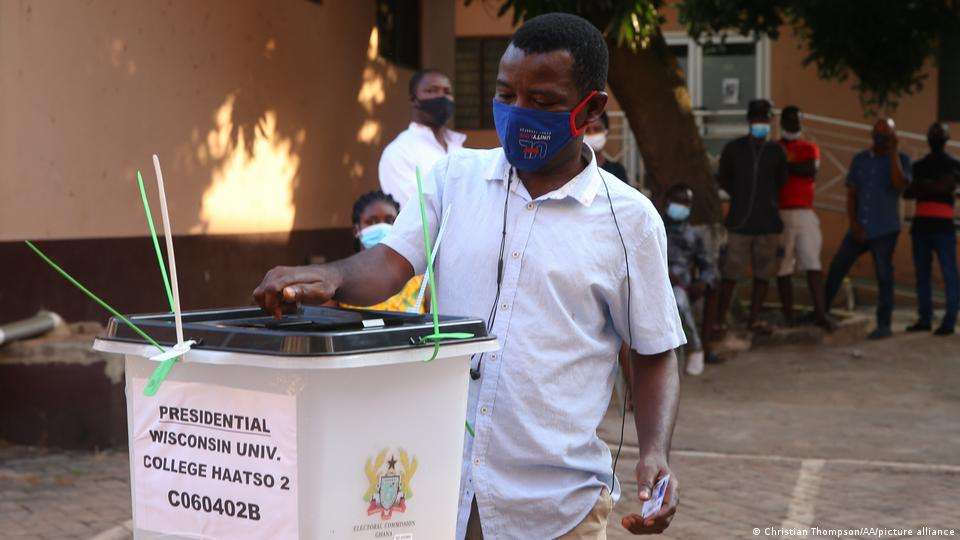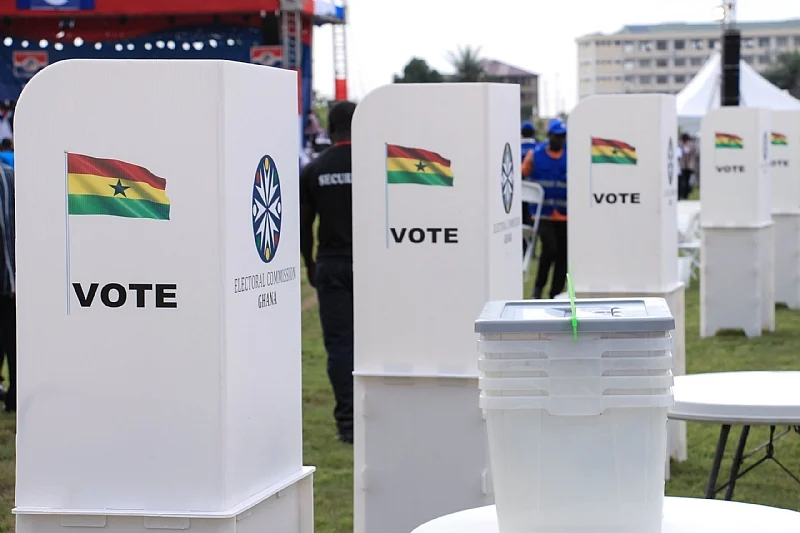Generally, elections in Ghana are characterized by threats of boycotts by voters for many reasons. While some electorate boycott elections due to the general dissatisfaction they have with their affiliated political parties, most threats to boycott elections are triggered by matters of development.
Recent research by Global InfoAnalytics showed an abysmal level of disinterest in the impending election with the electorates planning to abstain from the electoral process. On the regional front, the Ashanti region is leading where 23% of electorates have decided to boycott the 2024 general election.
As expected of every elecion year, communities have begun to give the government and politicians ultimatums which if not been met, they will abstain from voting.
An example is the Kpone Katamanso constituency where electorates have threatened to boycott the upcoming elections if politicians fail to address issues of development concerning the constituency, especially its deplorable roads and the poor healthcare system.
One factor that influences voter choice or electoral boycotts in Ghana is the failure of politicians to deliver on their promises. Mostly, Ghanaian voters do not see the need to renew the mandate of politicians who have failed to provide for the needs of the people.
This mostly happens at the constituency level where Members of Parliament are constantly judged by their ability or inability to develop their constituencies.
Additionally, the Economic situation of the country influences the decision of voters to boycott Presidential elections particularly. To some Ghanaians, mostly electorate in the swing regions, their decision whether to vote or abstain from voting depends on their economic welfare.
The dilemma to vote or not to vote results from their distrust of the candidates of both political parties, NPP and NDC, to spearhead development.
“One of the factors that influence voter choices [to vote or not] in this country, is the economy. People vote based on the health of the economy. If you have a healthy economy, people respond positively by voting for the government of the day. If the economy is in tatters, all things being equal, the government’s record [vote] will be in tatters”.
Dr. Kwame Asah-Asante
Also, the level of corruption determines whether or not some Ghanaians will exercise their franchises. Election boycotts are used as a tool by electorates to force the government into taking steps to address issues of corruption. This is particularly effective in situations where the boycotting group contributes immensely to the vote count of the government of the day.
For instance, an NDC administration will be forced to take action to address matters if electorates in the Volta region threaten to boycott the general election and so will an NPP administration if voters in the Ashanti region did the same.
Consequences
The decision by electorates to boycott elections largely affects the democratic process of countries, Ghana inclusive. Elections are meant to be democratic processes and a process cannot be defined as democratic if some people are involved in decision-making while others are not.

While boycotts may beat leaders into doing what electorates demand from them, in terms of development, they create a pattern where politicians can only be held accountable for their words and actions during elections.
As is usually the case in Ghana, politicians only begin to take the public seriously if it threatens to or actually engages in a boycott.
For instance, the NDC prioritized the Volta region in its election campaign in 2020 because of the decision by electorates in the Volta region to boycott the 2016 election which contributed to the NDC’s loss in the 2016 general election.
Moreover, boycotting elections also causes financial loss to the state as the resources used to prepare for the elections go to waste.
For example, if the Electoral Commission (EC) prints ballots for two million Ghanaians to vote and a million Ghanaians abstain from voting, then one million ballots would have to go to waste as they cannot be reused in any other election.
Conclusively, while boycotting elections seems to achieve a temporary victory for the boycotting group, the action does not guarantee a proper address to issues and neither does it safeguard democracy nor does it make politicians entirely accountable.




















